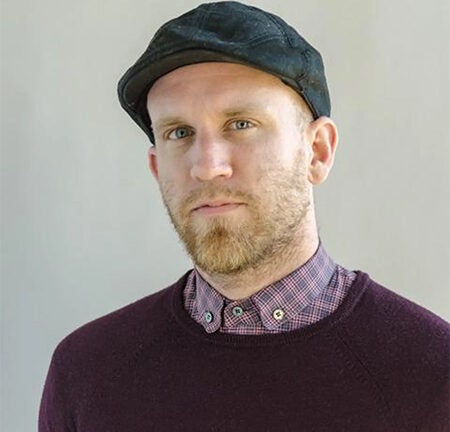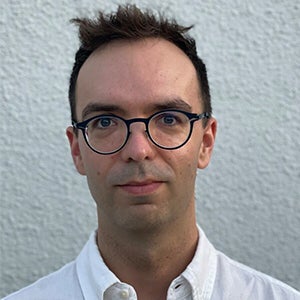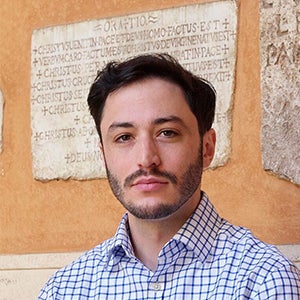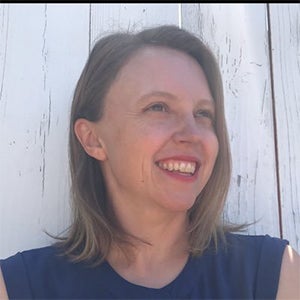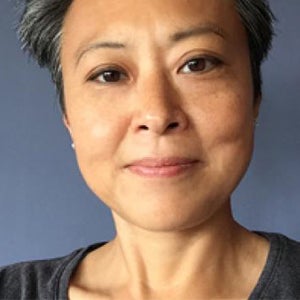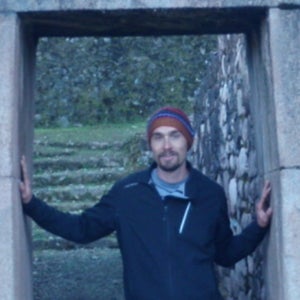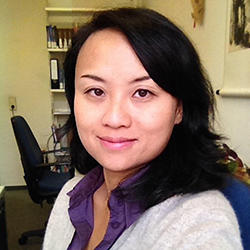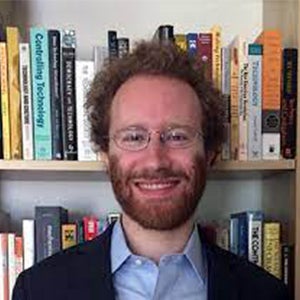2020-2022 Postdoctoral Fellows
Sean Fraga is an interdisciplinary historian of the North American West, specializing in connections between settler colonialism, the environment, technology, and mobility. He holds a Ph.D. and an M.A., both in history, from Princeton University, and received his B.A. in American Studies, with distinction in the major, from Yale University. His book project, Ocean Fever: Steam Power, Transpacific Trade, and American Colonization of Puget Sound, under contract with Yale University Press, argues that American settlers interested in trade with East Asia re-shaped the Puget Sound region around steam-powered trade, repeatedly displacing Native peoples and dramatically altering coastal environments. His research has been published or is forthcoming in Western Historical Quarterly and Current Research in Digital History. At USC, his research focuses on digital mapping, data visualization, text mining, and augmented reality. More information is available on his website.
Current Position: Assistant Professor (teaching), Environmental Studies, USC
Mark Letteney is an ancient historian and an archaeologist, and comes to USC from Princeton University. His work focuses on a moment of flux, when Christians first took control of Roman institutions with enough power to effect broad-scale societal changes. His dissertation, titled Christianizing Knowledge, explored how imperial Christianity changed the way that ancient scholars in “secular” disciplines made arguments, and thought about accessing truth, in the fourth and fifth centuries CE. At USC Mark will turn to the physical landscape of the ancient Roman empire. He will write a book tentatively titled Christianizing Space, that attempts to understand ancient Christian ideas about the pagan landscape, and the material practices that they undertook to remake Rome as a Christian empire. Mark serves as co-director of the Solomon’s Pools Archaeological Project in Bethlehem, Palestine, and as a field archaeologist excavating a Roman army base at Legio, Israel. He is a fellow of the American Academy in Rome and the American School of Classical Studies in Athens, where he is currently in residence as the Oscar Broneer Traveling Fellow.
Current Position: Assistant Professor, Department of History, University of Washington
2019-2021 Postdoctoral Fellow
Julia Lewandoski is a historian of cartography, empire, and Indigenous peoples in early North America. Her work lies at the intersection of Legal, Atlantic, and Borderlands history, Native American and Indigenous Studies, and Science and Technology Studies. She holds at PhD from the Department of History at the University of California, Berkeley with a Designated Emphasis in Science and Technology Studies. Her current book and digital media project explores the impact of imperial land tenure regimes on Indigenous property ownership, sovereignty, and survival in eighteenth- and nineteenth-century North America.
Current Position: Assistant Professor, Department of History, UC San Diego
2017-2019 Postdoctoral Fellows
Zachary Furste
Zachary Furste is a writer, curator, and personal computing enthusiast. He holds a PhD from the department of Visual and Environmental Studies at Harvard University and was a Visiting Fellow at the Insititute for Media Studies at Humboldt University, Berlin. His current book and digital media project, Finding Media: Recordings from Elsewhere, 1936–1965, surveys experiments with found durational media—film and phonographs—in the US and Europe. Drawing from media theory, art history, and film studies, he specializes on media technology in and around the arts since the invention of photography.
Current Position: Lecturer, New Media and Digital Culture, University of Amsterdam
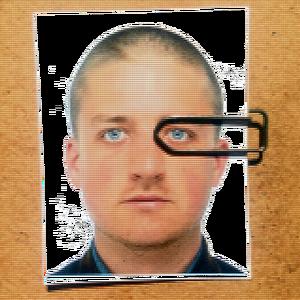
Elaine Gan studies the timing of human-plant interactions, specifically around rice cultivation, as technologies of life and death that make geopolitical histories. Working through the intersection of digital arts, anthropology, and science studies, Gan explores the temporalities of natures, cultures, and machines to map dynamics of environmental change. Recent projects include co-editing an anthology titled Arts of Living on a Damaged Planet: Ghosts and Monsters of the Anthropocene (2017) and co-curating an exhibition titled DUMP! Multispecies Making and Unmaking (2015). She received an NYU grant to start a Multispecies Worldbuilding Lab and is the recipient of the Distinguished Alumna Award from UC Santa Cruz, where she earned her Ph.D. and MFA.
Current Position: Assistant Professor, Science in Society, Wesleyan University
Jeremy Mikecz is a historian doing research at the intersection of geography and ethno-, social, and digital history. His current research uses digital text analysis and mapping to reconstruct indigenous activity and its role in shaping the events of conquest-era Peru. More broadly, his research examines the ways digital tools can be used to reconstruct the history of marginalized people. In other words, his work proposes an agenda and a methodology for a ‘digital history from below. Dr. Mikecz’s work was most recently published in the International Journal of Humanities and Arts Computing (Edinburgh University Press, March 2017): “Peering Beyond the Imperial Gaze: Using Digital Tools to Construct a Spatial History of Conquest.”
Current Position: Research Data Science Specialist, Dartmouth College Library
2016-2018 Postdoctoral Fellows
Rhae Lynn Barnes is a cultural historian who specializes in the history of North America. The New York Times, The Washington Post, The Atlantic, California University Press, the Journal of African American History, and an amicus brief to the Supreme Court have used and cited the research on U.S. History Scene, the digital public history website she founded. In addition to her affiliation with USC Digital Humanities, Barnes was the recipient of a USC Society of Fellows postdoctoral fellowship. At USC, she created an immersive digital humanities study abroad program “Sojourners: Black Popular Culture in Paris Noir from Sally Hemings to Beyoncé,” grounded in global African American, colonial, and cultural studies. She is an executive advisor with Henry Louis Gates Jr. to the four-part PBS documentary series “Reconstruction: America after the Civil War.”
Current Position: Assistant Professor, Department of History, Princeton University
Liying Sun is a cultural historian with a focus on Chinese media and its global context. She was co-founder and co-editor of the databases “Chinese Women’s Magazines in the Late Qing and Early Republican Period,” and “Early Chinese Periodicals Online,” a multiple-year interdisciplinary project housed at University of Heidelberg, Germany. By combining digital tools and rich historical materials, Liying’s postdoc project, to be carried out at USC, explores the historical audiences and transcultural perceptions of Hollywood silent films in China in the 1910s-1920s.
Current Position: Visiting Assistant Professor, Asian and Slavic Languages and Literatures, University of Iowa
2015-2017 Postdoctoral Fellows
Peter Sachs Collopy is a media historian. He is researching how artists, scientists, and political activists used the new technology of videotape in the 1960s and 1970s, interpreting it as both a political weapon and a medium of collective human consciousness. Peter’s research demonstrates how contemporary ideas about the ethereality and democratizing power of digital media emerged from engagements with earlier analog electronic technologies for image processing and magnetic recording. He is also involved in digital publishing projects including the History of Anthropology Newsletter.
Current Positions:
University Archivist and Head, Special Collections, Caltech
Adjunct professor, Claremont Graduate University
2014-2016 Postdoctoral Fellows
Matthew Sargent
Matthew D. Sargent received his joint Ph.D. in History and Organizational Behavior at the University of California, Berkeley in May, 2013. His dissertation, “The birth of globalization: cross-cultural knowledge transfers along European-Asian trade routes and the rise of the multinational corporation (1250-1750),” examined the ways in which evolving patterns commercial organization transformed global trade and knowledge flows during the medieval and early modern period. While at USC, Sargent taught courses on business and labor in American history.
Current Position: Management Scientist, Rand Corporation

Justin Underhill
Justin Harrington Underhill received his Ph.D. in Art History from University of California, Berkeley in December, 2012. His dissertation “World Art and the Illumination of Virtual Space” used advanced software to reconstruct the architectural contexts in which works of art were displayed to explore the relation between pictures and the lighting of the space in which they were originally viewed. While at USC he taught courses on art, science, and technology in different societies.
Current Positions:
Faculty, Santa Rosa Junior College
Editor, International Journal for Digital Art History
